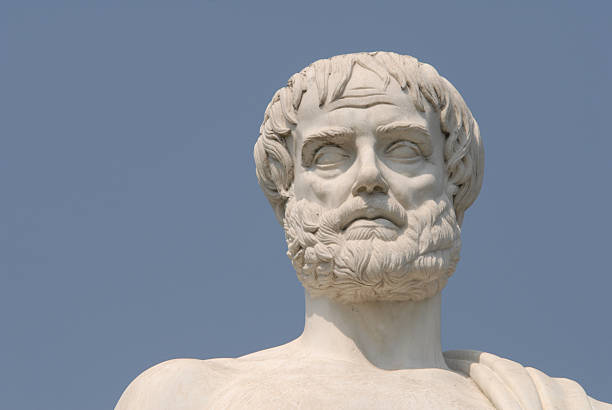Aristotle
1. Who said ‘The state comes into existence for the shake of life and continues for the shake of good life’: a) Rousseau b) John Locke c) Aristotle d)Karl Marx Ans: c) Aristotle 2. Who is the first philosopher to introduce the classification of knowledge and paved the way for their independent development: a) Rousseau b) John Locke c) Aristotle d)Karl Marx Ans: c) Aristotle 3. Who commended the science of politics as the ‘master science’ or ‘master of all arts’? a) Plato b) John Locke c) Aristotle d)Karl Marx Ans:c) Aristotle 4. Which among the following is not a work of Aristotle? a) Metaphysics b) Nicomachean Ethics c) Politics d)Republic Ans:d) Republic 5. Aristotle’s concept of justice was described in which of his work: a) Metaphysics b) Nicomachean Ethics c) Politics d) Republic Ans: b) Nicomachean Ethics 6. According to Aristotle- Justice is: a) The interest of the stronger b) Speaking truth and paying one’s debt c) The virtue derived from the wealth d)The perfect virtue…that is displayed towards others. Ans: d)The perfect virtue…that is displayed towards others. 7. According to Aristotle, the legislator should be concerned with: a) Commutative Justice b) Distributive Justice c) Corrective Justice d) Retributive Justice Ans: b) Distributive Justice 8. Aristotle divided the concept of justice into how many types: a) 3 b) 4 c) 5 d) 2 Ans:a) 3 9. Who among the following known as an early exponent of conservatism: a) Plato b) John Locke c) Aristotle d)Karl Marx Ans: c) Aristotle 10. Which among the following is the basic principle of distributive justice: a) Treating everyone equally b) Treating equals equally and unequals unequally c) Treating everyone on the basis of wealth d) all of the above Ans: b) Treating equals equally and unequals unequally 11. Which among the following is not correctly matched: a) Distributive Justice – concern of the legislator b) Retributive Justice – concern of the judges c) Commutative Justice – concern of the judges d) None of these Ans: d) None of these 12. Which among the following is known as the rule of few: a) Monarchy b) Aristocracy c) Polity d) Democracy Ans: b) Aristocracy 13. Who said, “Democracy is based on a false assumption of equality”: a) Plato b)John Locke c) Aristotle d) Karl Marx Ans: c) Aristotle 14. The book ‘Democratic Theory: Essays in Retrieval (1973): a) Barker b) Aristotle c) Macpherson d) None of these Ans: c) Macpherson 15. Aristotle’s classification of constitutions is based on which method: a) Historical method b) Comparative method c) Empirical method d) None of these Ans: b) Comparative method |
Contributions of Aristotle on Political Science
| Aristotle made significant contributions to political thought. Some of his important political contributions are like: 1. Classification of Governments: Aristotle classified governments on the basis of who rules and for whom they rule. He identified three main types of legitimate government: Monarchy, Aristocracy and Polity and their corresponding corrupt forms are tyranny, oligarchy, and democracy. 2. Concept of the Polis (City-State) 3. Theory of Citizenship 4.Ethics and Politics 5.Constitutional Theory 6.Role of Law 7.Political Education |
Important Facts about Aristotle
| 1. Aristotle was born in 384 BCE in Stagira, Macedonia, Greece. His father’s name is Nicomachus and he was a physician to the Macedonian royal family. 2. Aristotle was a student of Plato at his Academy and teacher of Alexander the Great. 3. Aristotle founded his own school in Athens named as Lyceum. 4. Aristotle has a tremendous contribution on logic, metaphysics, ethics, politics, and natural sciences and particularly on Western political philosophy. 5. Aristotle has significant contributions on biology, zoology, and physics. |
Important Books Written By Aristotle on Politics
| 1. Politics – This is Aristotle’s most famous book on political philosophy which cover topics like the nature of the state, types of government, citizenship, justice, and the ideal state. 2. Nicomachean Ethics – The book is primarily focused on ethics, but also discusses political philosophies and other topics like the moral virtues of citizens and leaders, and the role of politics. 3. The Constitution of Athens – This is a book attributed to Aristotle and his school, which provides insights into the political organization and history of Athens, including its democratic institutions. |
https://daytodayfacts.com/platomultiple-choice-questions-on-plato-day-today-facts/

